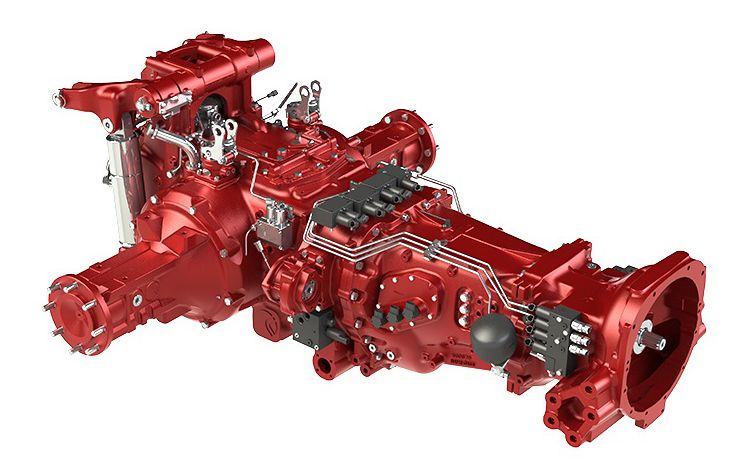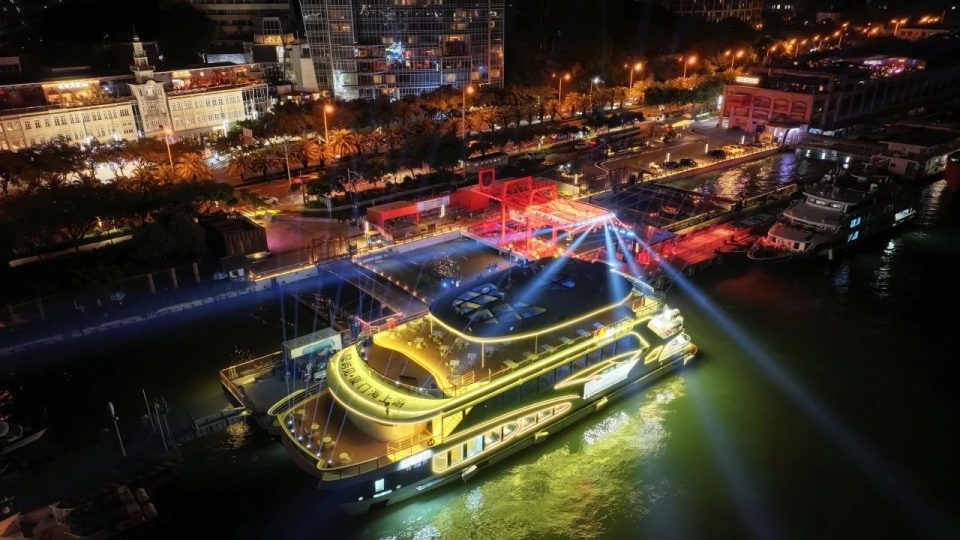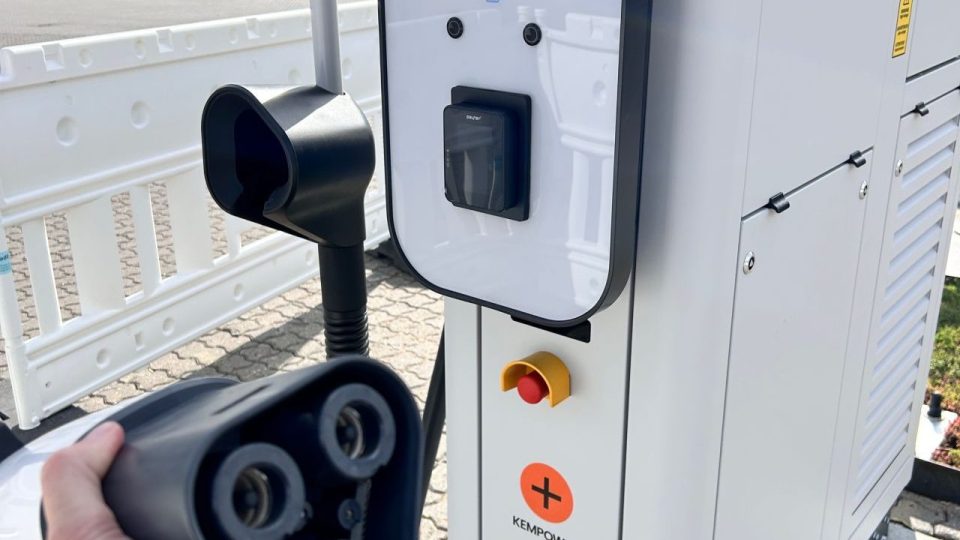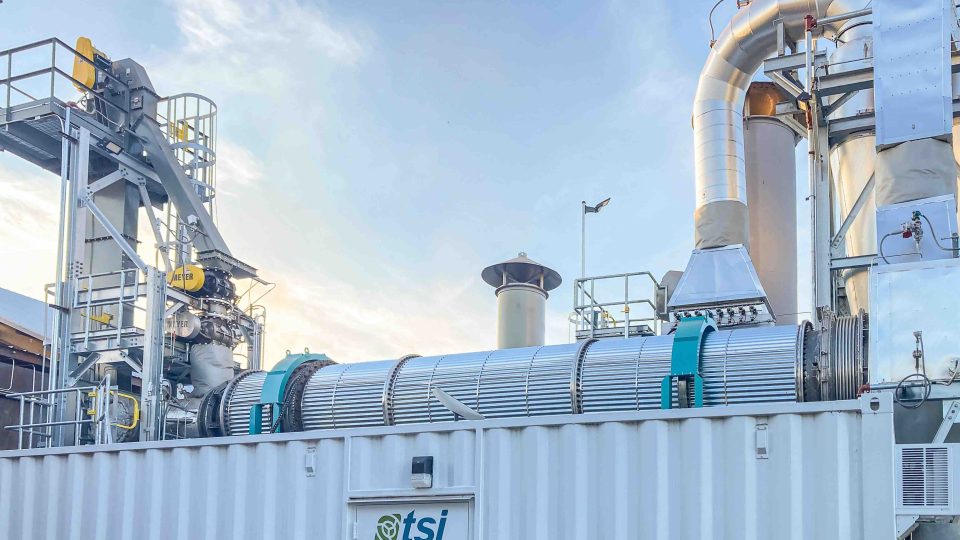The German LNG paradigm
TEME 2030+ is a German way to explore practicable ways of reducing greenhouse gas emissions from marine engines by 35% by 2030
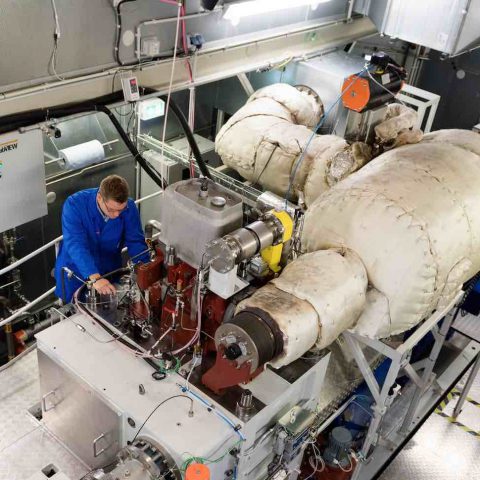
We don’t want to be repetitive, but it’s the hot topic right now, along with hydrogen, so we’re reporting on the German LNG paradigm. The University of Rostock, which is particularly involved in methane gas research, is a part of a consortium of partners from the marine engine industry and scientific research such as FVTR, Schaller Automation Industrielle Automationstechnik, Umicore & Co. KG, KS Kolbenschmidt, Kompressorenbau Bannewitz and Sick.
A German project concerning LNG
The consortium will work to identify technical solutions in a four-year research project that aims to reduce greenhouse gas emissions from ship propulsion by 35% by 2030 compared to today’s level. The project is funded by the German Federal Ministry for Economic Affairs and Energy and by the involved companies themselves. Solutions are to be developed that significantly reduce the emission of gases that are harmful to the climate, using LNG as a reference fuel, as this has the lowest particle, nitrogen and sulfur oxide emissions of all of today’s marine fuels. Current marine engines powered by natural gas, however, release small portions of gaseous fuel into the atmosphere as methane emissions. This is known as methane slip. Due to the negative impact of methane gas on climate change, it being 28 times more harmful than CO2, the potentials of using this very clean-burning natural gas cannot be fully exploited today. Therefore, within the framework of this research project, internal engine measures as well as specially developed catalytic converters are to be systematically investigated to reduce methane emissions. The aim is to reduce me-thane slip in exhaust gas by 90%. This corresponds to an overall reduction in greenhouse gas emissions caused by engine operation by 20%.
Measures targeted at increasing engine efficiency in gas operation are intended to reduce climate-dam-aging emissions by a further five percent. Advanced turbocharging technology to increase the efficiency of energy conversion in the engine and the potentials of a fundamentally new mixture formation process will be employed to meet this end.
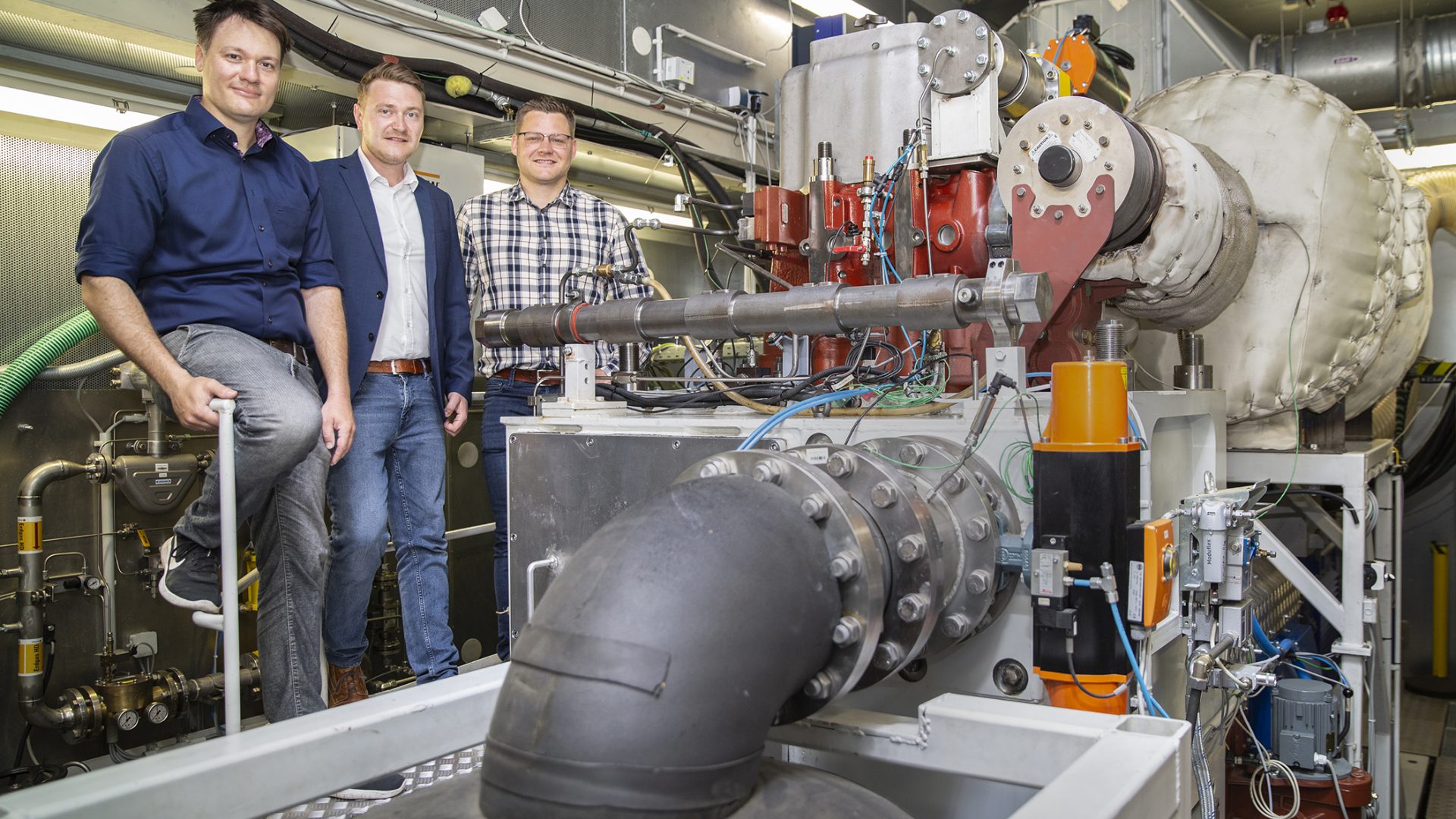
Project team at testbed
Hydrogen admixtures
Diverse campaigns to develop a hydrogen economy will lead to hydrogen increasingly being added to natural gas for many applications in the near future. Using these gas mixtures will clearly have positive effects on greenhouse gas emissions, but also poses major challenges for the operation of large engines. Hydrogen admixtures of up to 30% are therefore taken into account in the TEME2030 + project, future engine technologies being developed with hydrogen admixtures from the very start. A special feature of the TEME2030 + project is that in all of the approaches and system optimizations investigated, attention is paid to their rapid practical transferability to the future generation of large engines. This is to ensure that the project’s results can already make a valuable contribution to verifiable greenhouse gas reductions in the coming decade.
From natural gas to synthetic methane
Using fossil fuel natural gas and the exploitation of the greenhouse gas reduction potential that can be achieved with it, the project’s results will help to bridge the gap to completely climate-neutral shipping. As the clean energy revolution progresses, fossil fuel natural gas, which essentially consists of methane, can be gradually replaced by synthetically produced methane from renewable energy sources. The infrastructures built and used today for natural gas can continue to be used. Existing natural gas engines and LNG ships are fully compatible with the synthetic methane that will be produced in the future. This means that the greenhouse gas emissions of the already existing ship fleet can be reduced step by step, which, due to the long service life of large merchant ships, is imperative for the achievement of the prescribed climate targets.





